The fashion world is a captivating whirlwind of trends, self-expression, and glamour. Beneath the surface lurk challenges that extend far beyond choosing the perfect outfit. Business ethics, the moral compass guiding a company’s actions. It undergoes testing in the fast-paced world of the fashion industry.
Companies face pressure to navigate complex social, economic, and ethical issues. From fair labor practices to environmental sustainability, the industry is evolving. Innovative strategies like sustainable practices and ethical sourcing pave the way.
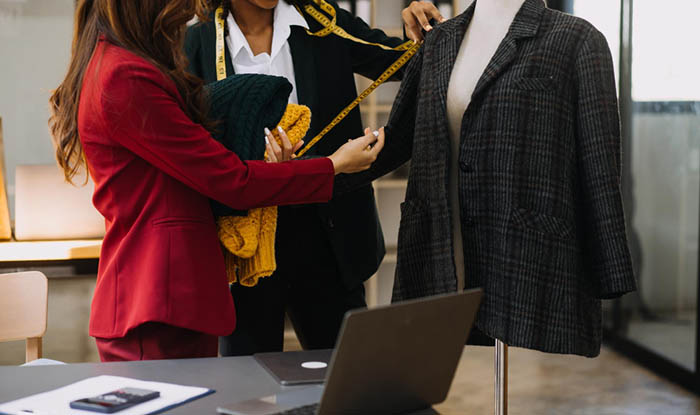
Additionally, business wargames, simulations that test decision-making in different scenarios. It can help companies prepare for these challenges and identify potential opportunities.
Let’s delve deeper into how fashion brands can overcome these hurdles. Create a more ethical and sustainable industry.
Also Read:
- Secrets & Symbolism: Demystifying Traditional Indian Jewelry
- 7 Proven Skills to Help You Cope with Stress Successfully
- Fashion Trends 2024: The Latest Trends Shaping Our Wardrobe
What is Business Ethics?
Business ethics refers to the moral principles and values that guide business behaviour. It encompasses all aspects of business conduct, from decision-making to corporate social responsibility.
Business ethics is the application of ethical values to business behaviour
Research demonstrates that businesses with robust ethical values outperform those lacking them. They benefit from higher customer loyalty, greater employee retention, and stronger support. The valid components of business ethics, each play a crucial role in guiding ethical behavior within a company or organization.
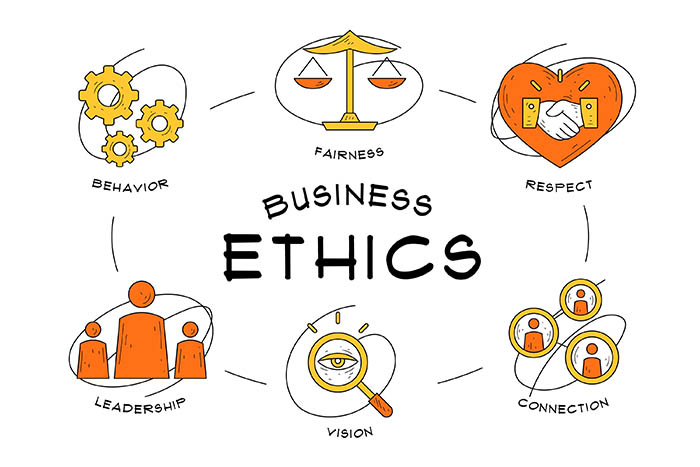
71% of people believe that companies should be transparent and ethical. And companies with high moral standards are 10.7% more profitable than those without.
Edelmen Survey
In short, ethical conduct is not only the right thing to do; it’s also an intelligent business strategy. Business ethics pertains to the moral and ethical standards. That guide the conduct of businesses and individuals in the business realm. These principles include honesty, integrity, fairness, and responsibility. And they guide the decisions and actions of businesses in an ethical and sustainable way.
Real-World Business Ethics Examples
In today’s globalized world, businesses deliver profits and adhere to ethical conduct. They must accept their social responsibility and follow environmental sustainability practices. This is particularly relevant in the fashion industry in India.
Ethical fashion isn’t just a label, it’s a commitment. Companies claiming ethical practices should be transparent about their entire supply chain, especially how they treat the workers who make their clothes. This goes beyond factory hours; it means fair wages, good working conditions, and benefits for employees. Basically, ethical fashion means happy and healthy workers throughout the production process.
Companies like H&M, Ritu Kumar Label, Zara, and FabIndia face complex challenges. These companies are the forefront of ethical sourcing and various sustainable practices. Let’s explore strategic planning and how they have navigated and overcome these challenges.

H&M: Balancing Fashion with Ethics and Sustainability
For nearly 3 decades, Hennes & Mauritz AB better known as H&M been champions of sustainable fashion, offering the best in style, quality, and affordability – all with a conscience. The company faces scrutiny over its labour practices. Particularly about working conditions in its supply chain. The company responded by implementing a strategic wargame and increasing transparency.
H&M also launched the “Conscious Collection. ” It features sustainable practices and a commitment to environmental sustainability. Investing in sustainable practices and ethical sourcing, H&M has demonstrates ethical conduct. The fashion brand aims to mitigate its impact on society and the environment. With a commitment to net-zero emissions across the entire value chain by 2040. H&M is designing a future for fashion that respects planetary boundaries.
Ritu Kumar Label: Exemplifying Ethical Luxury in India
As a luxury fashion brand in India, Ritu Kumar Label has focused on ethical conduct. Promoting traditional Indian craftsmanship and supporting local artisans.
Sustainability is woven into the DNA of Ritu Kumar and has always been at the forefront of everything the brand undertakes. Each collection over the years has included pieces crafted out of fibres that are as close to nature as possible
Ritu Kumar
The brand emphasizes fair trade and sustainable practices in fashion.
Team of fashion designers ensuring that its products impact the communities involved. By prioritizing ethical sourcing and production, Ritu Kumar Label has carved a niche. In the realms of fashion industry in India it upholds strong business ethics.
Zara: Evolving Towards Ethical Sustainable Practices
We all know Zara for its fast fashion model. It has faced criticism for its environmental impact and labour practices. In response, Zara’s parent company, Inditex, has implemented an environmental sustainability.
Focused on reducing waste and emissions. Zara has also introduced strategic planning in sustainable practices. It also implemented sustainable practices to promote ethical sourcing throughout its supply chain.
Zara has shown a commitment to business ethics and social responsibility. Need is there for all-around efforts to reduce its environmental footprint.
Fabindia: Championing Ethical Fashion and Artisan Empowerment
Fabindia has been a pioneer in the ethical and sustainable industry in India. Promoting traditional handicrafts and supporting rural artisans. The fashion brand’s “Fabindia Organics” line focuses on organic and sustainable products. Fashion designers at Fabindia reflect its commitment to ethical fashion and environmental conservation.
The brand creatively integrates the traditional ‘Gudri’ technique in its clothing lines. This method artfully combines fabric scraps from tailors and textile factories, repurposing rejected or leftover materials to reduce textile waste. Mainly sourcing these textiles from Rajasthan and Gujarat adds a touch of cultural authenticity.
The eco-friendly range reflects Fabindia’s values and commitment to making a positive impact on the planet. We aim to embrace sustainability holistically, creating a collection that gives a second life to non-biodegradable materials while beautifully serving everyday needs. Through the sale of these items, we will also fund additional ecological preservation efforts and provide assistance to the underprivileged
Aartee Roy, Business Head, Fabindia
Fabindia involves in community development projects. Empowering local artisans and promoting fair trade practices. Through these environmental sustainability efforts, Fabindia has established its social responsibility. A brand with intense ethical conduct.
Also Read:
- Normcore Fashion Trends 2023: Making the Mundane Marvelous
- Unveiling Potential: Women in the Workplace 2023 Embracing Leadership
Empowering Consumers: The Shift Towards Ethical and Sustainable Fashion
The fashion industry in India is transforming. Driven by innovative fashion designers and brands. And also by growing consumer awareness. Today’s shoppers raises concerns about ethical sourcing and sustainable clothing choices. Conscious consumers can empower themselves to make informed decisions. And push the fashion industry in India towards a more sustainable and ethical future.
Understanding the Power of Your Wallet
Every fashion sale you make sends a message to the brands you support. Ethical fashion focuses on the social and environmental well-being of people involved. From the farmers who grow the raw materials to the garment workers who sew the clothes. Sustainable fashion emphasizes minimizing the industry’s environmental footprint. Using environment-friendly materials and reducing waste.

Understand the actual cost of clothing and impact of your purchases. You can become a more conscious consumer. Research fashion brands’ strategic planning for sustainability practices. Look for certifications like Fair Trade or Organic Cotton. it ensure ethical sourcing and environmental sustainability with production.
Clothing for Sustainable Fashion
Slow fashion encourages buying quality pieces that last longer. Rather than following fleeting trends. Invest in timeless classics that can mix and match. Consider pre-owned clothing stores and online marketplaces for unique finds.
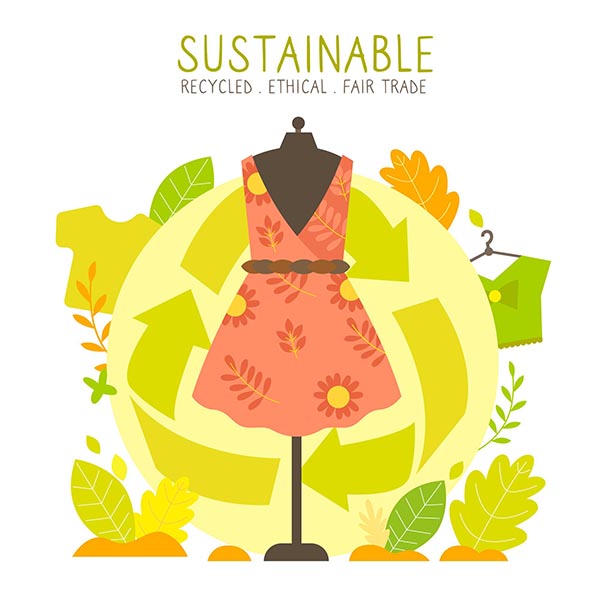
This extends the garments’ life cycle and reduces the fashion industry’s environmental impact. As consumers, our buying habits directly impact trends in the industry
Supporting Sustainable Fashion Brands
It is crucial to support sustainable fashion brands. To reduce the environmental impact of the fashion industry. Consumers can promote a more sustainable future. Choose brands that prioritize eco-friendly materials, ethical sourcing, production practices, and fair wages. These brands often offer unique, high-quality pieces that align with conscious consumer values.
Advocating for Change
Your voice matters! Use social media platforms to raise awareness about ethical and sustainable fashion issues. Social responsibility is no longer a choice for brands. It’s a conscious consumer’s expectation. Engage with fashion brands you support. Ask questions about their business ethics and sustainability. Please encourage them to focus on ethical conduct and sustainable practices.
Make informed choices and support ethical and sustainable brands. Consicoious consumers can be a powerful force for change. In the fashion industry in India, let’s envision a future. The Fashion transcends mere trends to become a force for positive change in the world.
Key Strategies: Ethical Conduct and Sustainable Practices
Promote ethical conduct and sustainable practices. Companies can emphasize transparency, sustainable sourcing, community engagement, and innovation. These strategies enhance their reputation and address social, economic, and environmental concerns.
Transparency and Accountability
These fashion brands have prioritized transparency in their operations. Providing stakeholders with visibility into their practices. This transparency helps build trust and accountability. Crucial for addressing ethical concerns.
Sustainable Practices
These companies have minimised their environmental impact by adopting sustainable practices. Such as using eco-friendly materials and reducing waste. This benefits the environment and enhances the companies’ commitment to social responsibility.
Ethical Sourcing
Companies like H&M, Ritu Kumar Label, Zara, and Fabindia have ethical sourcing. Ensuring that their products is under fair labor conditions. This commitment to ethical sourcing helps protect workers’ rights. And improves working conditions in the industry.
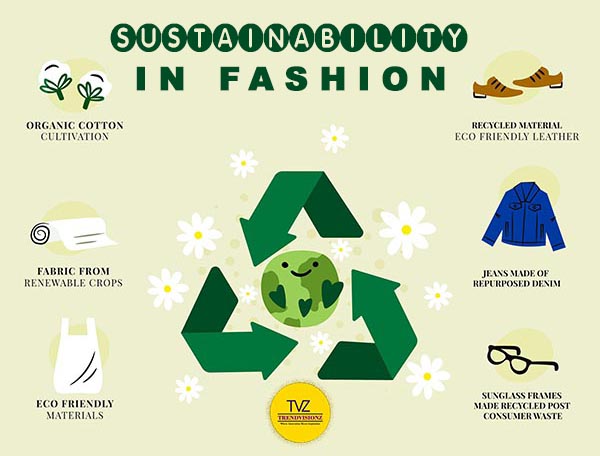
Community Engagement
Engaging with local communities and supporting artisanal traditions. This has been a critical strategy for these companies. By investing in communities, they contribute to local economies. And build strong relationships with stakeholders.
Innovation and Adaptation
These companies are willing to innovate and adapt. Adhering to changing conscious consumer demands and ethical standards. By staying ahead of the curve, they have addressed emerging issues. And have maintained their competitive edge.
Companies use strategic planning tools like business war games. These games test beliefs, understand industry issues, and identify emerging opportunities and threats. Aiding corporate planning and strategy development.
Leveraging Business Strategic Wargames
A Strategic wargame allows organisations to test their beliefs and assumptions. The process will enable organisations to build a better understanding of industry issues. And help them identify emerging opportunities and threats. It is a tool in use when the competitive environment is undergoing a process of change. It allows decision-makers to consider how different organisations can react to the change.
The objective of a War Game should be to improve corporate planning processes. And use the lessons learned from the War Game in business strategy.

War Games involve several teams. Each representing a different “player” operating in the industry. Depending on the actual purpose and scope these teams represent different competitors. They can also include critical customers or other organisations, such as regulatory bodies.
Benefits of Strategic Wargames for Business Planning
Explore the benefits of strategic wargames. Including enhancing decision-making, identifying vulnerabilities, improving teamwork. And anticipating market changes for cost-effective strategies.
- Comprehensive Understanding. Gain insights into the current situation, opportunities, threats, and short-to-medium-term issues.
- Recommendations and Testing. Test recommendations and suggestions for future actions within the game scenario.
- Identifying Blind Spots. Identify corporate blind spots, vulnerabilities, and proactive strategies for protection or advantage.
- Market Intelligence. Discover missing intelligence on the market and business environment.
- Teamwork Improvement. Enhance teamwork and understanding among decision-makers in different functional areas.
- Anticipating Market Changes. Expect and be aware of market changes over the short-to-medium term. Leading to significant cost savings through better-planned responses to threats and emerging opportunities.
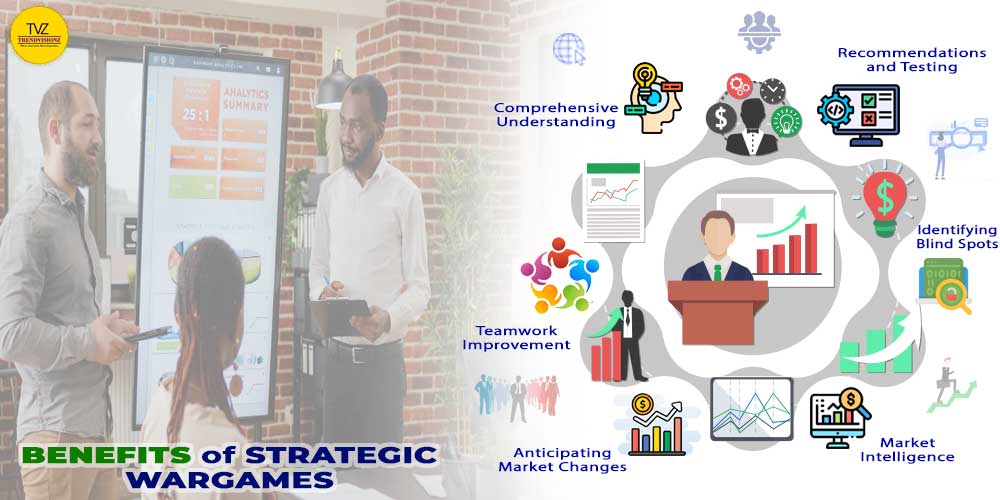
Strategic wargames offer a comprehensive approach to understanding and navigating the business landscape. Enabling fashion brands to make informed decisions and stay ahead of the competition.
Conducting Strategic Wargames in Business Planning
Strategic wargames are valuable tools for businesses looking to expand. Or compete in new markets. For example, Company A may use a wargame to understand. How its competitor, Company B, will react to its plans for expansion into a new region. Where Company B already operates. Company A can better prepare for competitive responses. And refine its strategy by simulating different scenarios and actions.

Scenario Briefing. Before each round of the wargame, brief each teams on the game’s purpose, rules, and assigned roles. Provide them with research. And analysis to inform their decisions. Including company profiles, management details, market conditions, and recent actions taken by competitors.
Gameplay. Teams move through rounds of actions, exploring various perspectives and courses of action. This process allows them to expect competitors’ reactions and develop strategic responses. Each team take decision on the information provided. Aiming to simulate real-world scenarios and enhance strategic planning.
Strategic wargames offer businesses a dynamic and interactive way to test strategies. Understand competitive landscapes and improve decision-making. By simulating market conditions and competitor responses. Companies can better prepare for real-world challenges. And increase their chances of success in new ventures.
Also Read:
- From Manu to Rama: Tracing the Mythic Lineage of Shri Ram
- Brew a Better World: The Secrets of Timeless Traditions
FAQ: Business Ethics
Why are business ethics important in the fashion industry?
Business ethics are crucial in ensuring fair labour practices. Minimizing environmental impact, and fostering sustainable practices. They guide companies to make ethical decisions that benefit society and the environment.
How can consumers support ethical fashion?
Consumers can support ethical fashion by researching brands’ ethical and sustainability practices. Choosing quality over quantity, and advocating for transparency in the fashion industry.
What role do strategic wargames play in business planning?
Strategic wargames help businesses expect market changes, identify vulnerabilities, and enhance decision-making. They simulate real-world scenarios. Allowing companies to refine their strategies and prepare for competitive challenges.
Conclusion
The fashion industry in India wields significant influence. And also impact on the global stage. At the same moment it grapples with complex ethical and environmental issues. Business ethics serve as the moral compass guiding fashion designers through complex challenges. They are critical in ensuring sustainable practices, fair labour conditions, and ethical sourcing. By adhering to ethical conduct, fashion designers can respect people and the planet. Thus contributing to a more sustainable industry.
Sustainable practices, are crucial for environmental responsibility. Ethical sourcing guarantees products produces under fair working conditions, protecting workers’ rights. Fashion designers and brands like H&M, Ritu Kumar Label, and FabIndia are leading the way.
Strategic wargames are a valuable tool for businesses. To explore potential challenges and opportunities. Companies can refine their strategies. Expect market changes, and make informed decisions by simulating different scenarios.
Through a commitment to business ethics, sustainable practices, and innovative strategies. Fashion brands in India can become leaders ethically and sustainably.
Strategic wargames help businesses expect market changes, identify vulnerabilities, and enhance decision-making. They simulate real-world scenarios. Allowing companies to refine their strategies and prepare for competitive challenges.





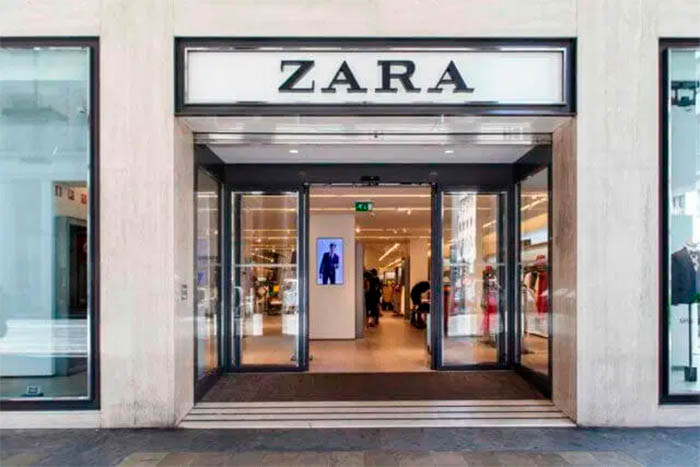
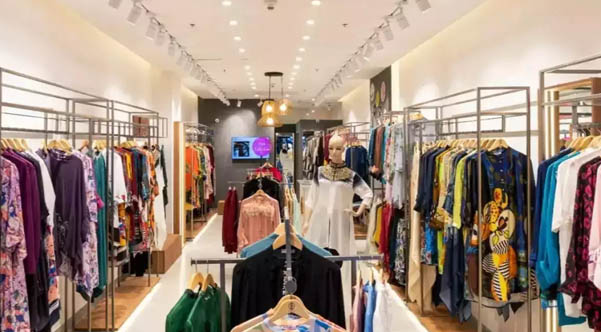
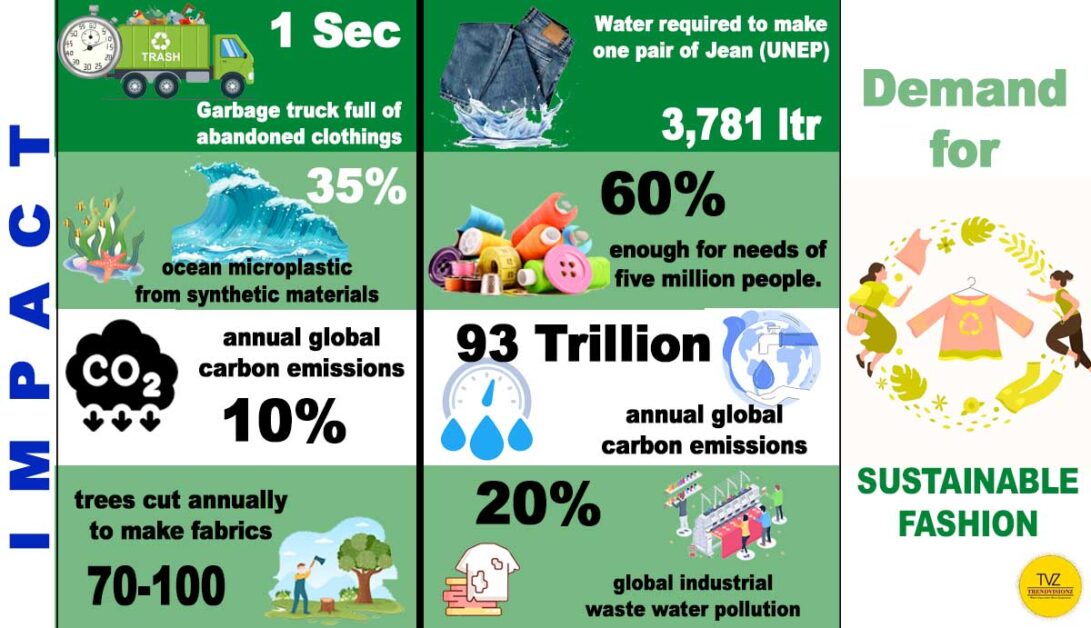

1 comment
Dakshita is budding critic and analytic columnist. Keep it up
Comments are closed.